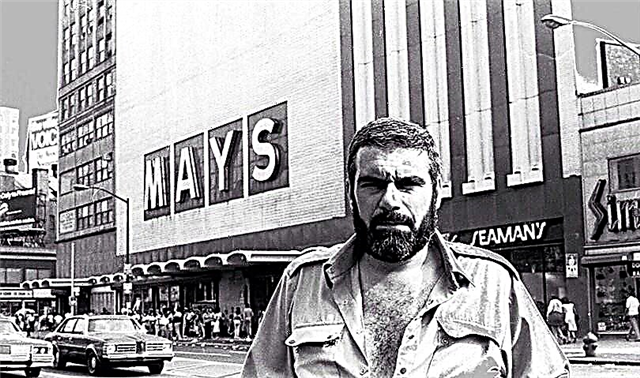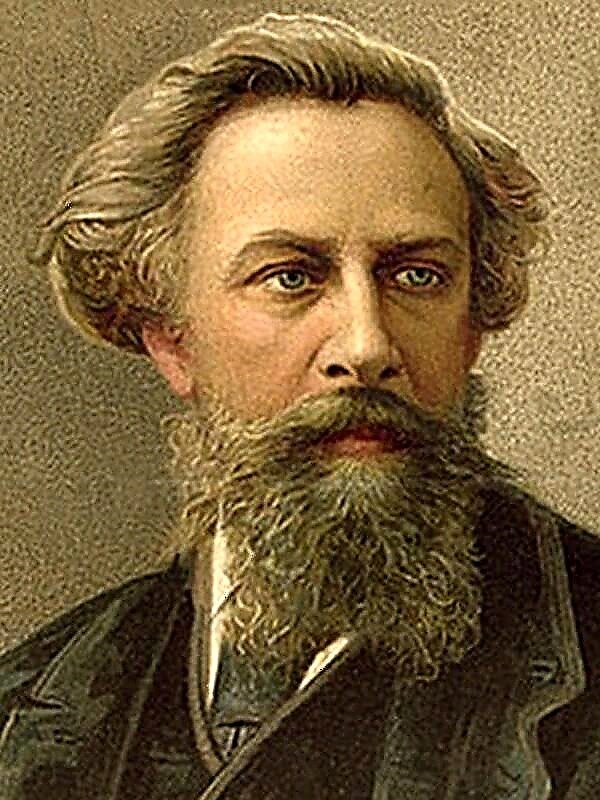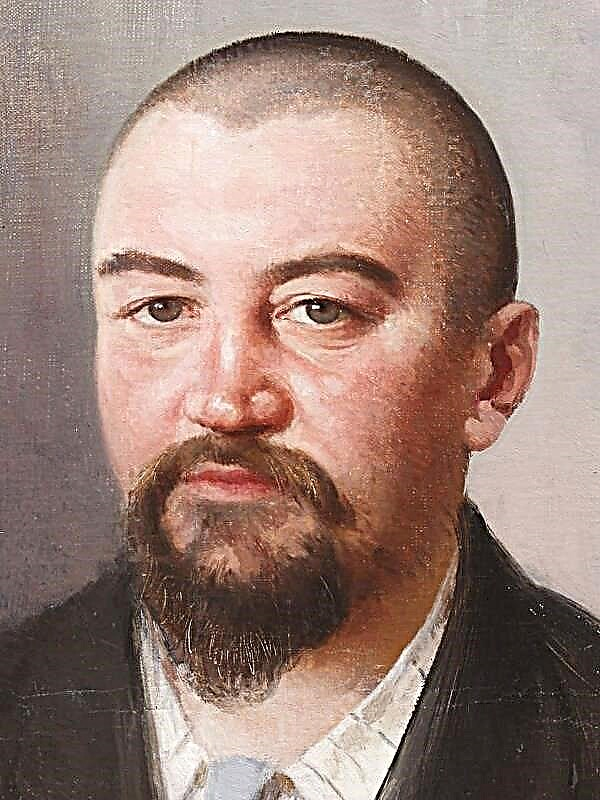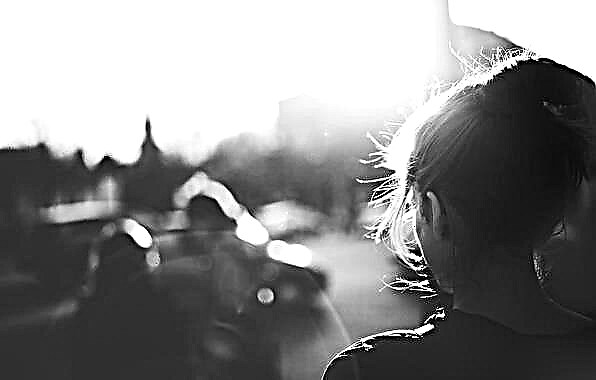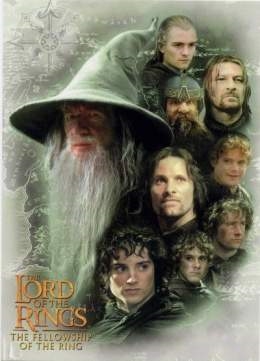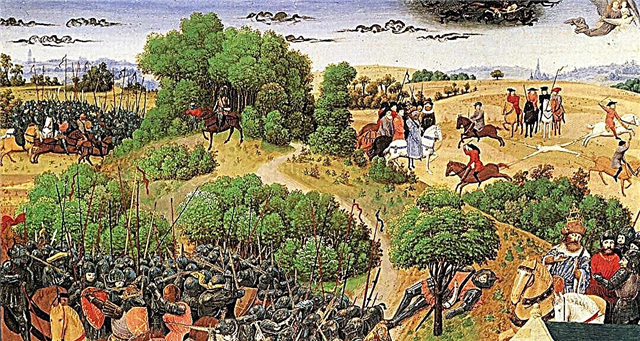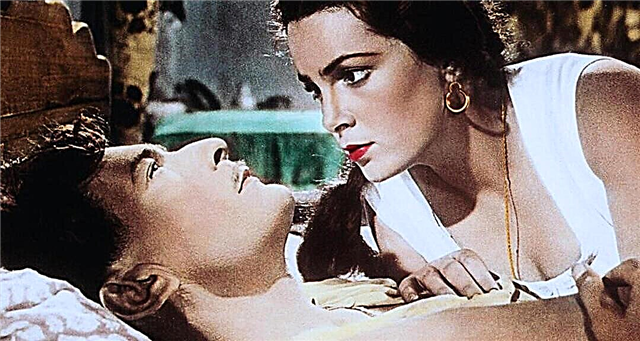: A young lieutenant falls into the Brest Fortress on the first day of the war. For ten months he stubbornly resists the Nazis and dies unbroken.
Part one
Nineteen-year-old Kolya Pluzhnikov graduates from a military school with the rank of junior lieutenant. Instead of a vacation, the commissioner asks him to help deal with the property of the school, which is expanding due to the complicated situation in Europe.
Two weeks Pluzhnikov disassembles and takes into account military property. Then the general calls him and offers to remain in the native school as the commander of the training platoon with the prospect of continuing his studies at the Military Academy. Kolya refuses - he wants to serve in the army.
The commander ... becomes a real commander only after serving in the troops, having choked up with fighters from the same bowler, having learned to command them.
Kolya was appointed platoon commander and sent to the Special Western District with the proviso that in a year he would return to the school.
Kohl leaves for the duty station via Moscow. He takes several hours to see his mother and younger sister - Kolya's father died in Central Asia at the hands of the Basmachis. At home, Kolya meets his sister's girlfriend. The girl has long been in love with him. She promises to wait for Kolya and is going to visit him at the new duty station. The girl believes that war will begin soon, but Kolya is convinced that these are empty rumors, and the Red Army is strong and will not let the enemy enter our territory.
Kolya arrives in Brest in the evening. Not finding the dining room, he, along with random fellow travelers, goes to a restaurant where a self-taught violinist plays. In Brest, it’s restless, every night behind the Bug you can hear the roar of engines, tanks and tractors.
After dinner, Kolya parted with his fellow travelers. They call him with them, but Pluzhnikov remains in the restaurant. The violinist plays for the lieutenant, and the musician’s niece Mirra escorts Kolya to the Brest Fortress.
At the checkpoint, Kolya is sent to the barracks for business travelers. Mirrochka undertakes to conduct it.
It was very quiet and very warm, and his head was spinning a little, and he thought with pleasure that he had nowhere to rush, because he was not yet on the lists.
Mirra, a lame Jewish girl working in a fortress, is aware of everything that happens in the city and in the garrison. This seems to Kolya suspicious. Before the next checkpoint, he is trying to open a holster of service weapons and, in an instant, is already lying in the dust at the sight of the officer on duty.
Having settled the misunderstanding, Mirra undertakes to clean Kolya of dust and leads him to a warehouse in a large basement. There, the lieutenant meets two elderly women, a mustachioed foreman, a gloomy sergeant, and an eternally sleepy young soldier. While Kolya is cleaning, it begins to grow light, the night ends on June 22, 1941. Kolya is seated to drink tea, and then a roar of explosions is heard. The foreman is sure that the war has begun. Kolya rushes up to catch his regiment, because he does not appear on the lists.
Part two
Pluzhnikov falls into the center of an unfamiliar fortress. Everything is burning around, people are burning alive in the garage. On the way to the PDA, Kolya hides in a funnel along with an unfamiliar fighter who reports: the Germans are already in the fortress. Pluzhnikov understands that the war has really begun.
Following a soldier named Salnikov, Kolya nails to his own and, under the command of the deputy political commander, repulses a club occupied by the Germans - a former church. Keep the church entrusted to Kolya. For the rest of the day, the fortress is bombed. Kolya and a dozen fighters beat off the Nazi attacks with captured weapons. All the water goes to cool the machine guns, the riverbank is already occupied by the Nazis, and thirst is tormented by the fighters.
He no longer felt fear or time: he rang in his stuffy ears, sorely tickled in his dry throat and withdrew his hands from a beating German submachine gun.
Between the attacks of Pluzhnikov and Salnikov they examine the vast basement of the church - the women hiding there seem to have seen the Germans - but they cannot find anyone. In the evening, the nimble Salnikov brings water. Kolya begins to understand that the Red Army will not help them.
In the morning the Germans break through the basement. Kolya and Salnikov, under fire, ran into another basement, where a small detachment of soldiers, led by a senior lieutenant, sat down. He believes that the church had to be left because of Pluzhnikov. Kolya also feels his guilt - overlooked - and undertakes to atone for it.
He sat on the floor, not moving, gloomily thinking that he had accomplished the worst: he had betrayed his comrades. He did not seek excuses for himself, did not spare himself: he sought to understand why this happened.
Kolya receives an order to correct the mistake and repel the church. They beat him off, and yesterday is repeated - bombing, attacks. Kolya lies behind a machine gun and shoots, burning on a red-hot case.
In the morning they are replaced. Kolya, Salnikov and the high border guard depart, fall under fire and break into the basement compartment, from which there is no way out. Only at night they break through to the ring barracks, under which also passes a network of basements. The enemy, meanwhile, is changing tactics. Now German sappers methodically blow up the ruins, destroying places where you can hide.
In the cellars, Kolya meets a wounded political officer and learns from him that the Germans promise paradise life to the surrendered "valiant defenders of the fortress." The political instructor believes that the Germans should be beaten so that they are afraid of every stone, tree and hole in the ground. Kolya understands - the political instructor is right.
The next day, Kolya falls into the common cellars.
Days and nights merged into a single chain of sorties and bombings, ... fights with the enemy and short, fainting minutes of oblivion. And a constant, exhausting, not passing even in a dream desire to drink.
Politruk dies, taking several fascists with him, a high border guard mortally wounds during the assault on the bridge, then commanders send women and children to German captivity so that they do not die of thirst in the basements.
Kolya extracts water for the wounded. The border guard asks to take him to the exit from the basement - he wants to die in the open. Helping a friend, Kolya says that everyone received the order "to run somewhere." But there are no rounds, and breaking through without ammunition is senseless suicide.
Leaving the border guard to die, Kolya and Salnikov set off to look for an ammunition depot. The Germans have already occupied the fortress. In the afternoon, they destroy the ruins, and at night these ruins come to life.
Wounded, scorched, thirsty and battered skeletons in rags rose from under the bricks, crawled out of the dungeons and ... destroyed those who risked staying overnight. And the Germans were afraid of the nights.
Friends make their way to the warehouse during the day, hiding in the craters. In one of the craters, a German finds them. Salnikov begins to be beaten, and Pluzhnikov is chased around, "cheering" with automatic bursts, until he dives into an inconspicuous hole in the ground.
Kolya gets into an isolated bunker where he meets Mirra and her companions - senior sergeant Fedorchuk, foreman, Red Army soldier Vasya Volkov. They have a supply of food, they got water by breaking the floor and digging a well. Having come to, Kolya feels that he is at home.
Part three
The warehouse, where Kolya drank tea in the morning of June 22, was covered with the first explosion.
The whole war for them, walled up alive in a remote casemate, was now going upstairs.
While Kolya was at war, they made their way through the basements into this isolated bunker with two exits - to the surface and to the arms depot.
Pluzhnikov decides to make his way to the remnants of the garrison, who are seated in the far basements, but he is late: before his eyes the Germans blow up the shelter and destroy the last defenders of the fortress. Now only scattered single people remain in ruins.
Pluzhnikov returns to the basement and lays on the bench for a long time, remembering those with whom he fought all these days.
With amazing clarity, he saw them all now.Everyone who, covering him, rushed forward, rushed without hesitation, without hesitation, driven by something incomprehensible, incomprehensible to him.
Kolya passes his death sentence and decides to shoot himself. He is stopped by Mirra. The next morning, Pluzhnikov finally came to his senses, arming the men who were under his command and arranging sorties to the surface, hoping to find at least one of his own. Kolya believes that Salnikov is still alive, and is constantly looking for him.
During one of the attacks, a shootout begins and the foreman is wounded in the leg. The next day, Fedorchuk disappears. Kolya, along with Vasya Volkov, goes to look for him and sees how he voluntarily surrenders to the Germans. Pluzhnikov kills a traitor with a shot in the back.
He did not feel remorse, having shot a man with whom he had sat at a common table more than once. On the contrary, he felt angry, joyful excitement.
Vasya begins to be afraid of his commander. Meanwhile, the Germans enter the fortress and begin to clear the ruins. Kolya and Volkov retreat and stumble upon prisoners, among whom Pluzhnikov sees a familiar Red Army soldier. He tells Kolya that Salnikov is alive and is in a German infirmary. The prisoner is trying to give him away. Kolya has to run away, and he loses Volkov.
Pluzhnikov notes that Germans of a different kind came to the fortress - not so quick and quick. He captures one and finds out that this is a mobilized German worker from the guard team. Kolya understands that he must kill the prisoner, but he cannot do this and releases him.
The foreman’s wound rots, he feels that he will not last long, and decides to sell his life expensively. The foreman blows up the gates through which the enemy enters the fortress, together with himself and a large group of Germans.
Part four
On the advice of the foreman, Kolya wants to send Mirra to the Germans captive, hoping that she can survive. The girl thinks that Kolya wants to get rid of her as a burden. She understands that the Germans will kill her, a cripple and a Jewess.
Pluzhnikov examines the labyrinth of basements and stumbles upon two survivors - the sergeant and corporal. They are going to leave the fortress and call Kolya with them. Mirra do not want to take new friends with them. They believe that the Red Army is defeated, and they want to escape as soon as possible. Kolya refuses to leave the girl alone and forces the sergeant and corporal to leave, supplying them with cartridges.
Mirra is in love with Kolya, and he shares her feelings. They become husband and wife.
And again there was no darkness, no basement, no rats that squeaked in the corners. And again there was no war, but there were two. Two on Earth. Man and woman.
Time passes. Pluzhnikov patrols the fortress every day. In one of these sorties, he meets Vasya Volkov. He lost his mind, but Pluzhnikova is still afraid. Seeing Kolya, Volkov runs away, stumbles upon the Germans and dies.
Autumn is coming. Mirra admits to Kolya that she is expecting a baby and must leave. Kolya already saw in the fortress a detachment of captured women who were dismantling the rubble. He takes Mirra to them, she tries to mix with the prisoners, but they notice an extra woman. She is recognized by a German who was once spared by Kolya. Mirra tries to move away so that Pluzhnikov, who is watching everything from the basement hole, does not understand anything and does not intervene. The girl is brutally beaten and pierced with a bayonet.
A bright light flashed before her tightly squinted eyes, and in this merciless light she suddenly saw that she would never have a baby, a husband, or life itself.
A half-dead girl is bombarded with bricks in a small funnel.
Part five
Kolya gets sick and loses track of the days. When Pluzhnikov recovers and gets out, there is already snow in the fortress. He again begins to hunt for German patrols.
He was alive and still felt like the master of the Brest Fortress, which had subsided under the snow.
Pluzhnikov is sure that Mirra has returned to her family, and is trying not to think about her.
Kolya gets into the church, remembers how he fought for him, and understands: there is no death and loneliness, "because there is it, this is the past."The Germans are trying to catch him, quietly cordoning off the church, but Pluzhnikov escapes. In the evening, Kolya returns to his habitable corner and discovers that it has been blown up - Pluzhnikov was given tracks in the freshly fallen snow.
Kolya goes to the unexplored basements and meets the surviving foreman Semishny there. He is wounded in the spine and can no longer walk - he is gradually paralyzed. But the spirit of the foreman is not broken, he is sure that every meter of his native land resists the enemy. He makes Kolya leave the basement every day and kill the invaders.
To know: the fortress is alive. So that they were afraid of the dead. So that our children, grandchildren and great-grandchildren are ordered to meddle in Russia!
Kolya gradually begins to lose his sight, but stubbornly goes "hunting." The foreman is also getting worse, he sits with difficulty, but does not give up, "giving every millimeter of his body to death with battle."
On the first day of 1942, Semishny dies. Before his death, he gives Kolya the regimental banner that he wore under his clothes all this time.
On April 12, the Germans find Pluzhnikov. As a translator, they bring a self-taught violinist who once played for Kolya. From him, Pluzhnikov learns that the Germans were defeated near Moscow. Kolya feels that he has done his duty, and goes to the enemies. He is sick, almost blind, but keeps straight. He goes to the ambulance through the line of German soldiers, and those at the command of the officer raise their hands to their caps.
But he did not see these honors, and if he did, he would not care. He was above all conceivable honors, above glory, above life and above death.
Near the car, he falls "free, and after life, death, death is corrected."
Epilogue
Visitors who come to the museum of the Brest Fortress will be sure to tell the legend of a man who was not on the lists but who defended the fortress for ten months, will be shown the only surviving regimental banner and “a small wooden prosthesis with the remainder of the female shoe” found in a funnel under the bricks.


